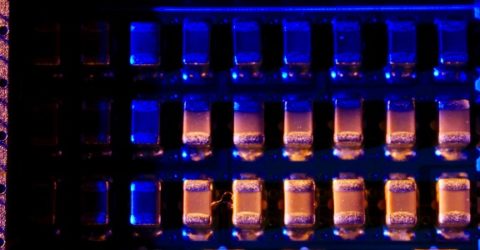Is quantum computing about to change the world?
Quantum computing potential extends beyond simply processing things faster, offering scope to create entire new consumer services and product offerings

It’s common for new technologies to be treated with a healthy degree of scepticism when they’re first unveiled.
From the internet to social media, it often takes a while for potential to become reality.
Today, there’s excitable talk about the blockchain’s potential, or how light-powered LiFi may supplant WiFi in the nation’s homes. Talk, but not much action as yet.
Quantum computing potential may be unmatched in terms of transforming our world – even more so than the Internet of Things, or fully automated robotics.
And while you don’t need a degree in quantum physics to understand quantum computing, it’s important to appreciate the basics of this highly complex (and unstable) technology.
Quantum of solace
Regardless of what they’re being asked to do, electronic devices only understand binary inputs. Zero or one, on or off. That’s it.
Every FIFA tournament, CAD package, Netflix marathon and email is composed of immense strings of zeroes and ones – the binary data bits computers can process and interpret.
Quantum computing potentially subverts this by allowing bits to be both zeroes and ones at the same time.
This status fluidity involves holding data in what’s called a superposition state – a coin spinning on its side rather than landing heads-up or tails-up.
Superpositions grant a single bit far more potential, offering exponentially more processing power than a modern (classical) computer can deliver.
Quantum computers are theoretically capable of achieving feats today’s hardware couldn’t manage in a hundred lifetimes.
Google claims to own a quantum computer which can perform tasks 100,000,000 times faster than its most powerful classical computer.
Indeed, computer scientists have already demonstrated that quantum processing can encrypt data in such a way it becomes impossible to hack.
This alone could transform online security, rendering spyware and most modern malware redundant, while ensuring a far safer world for consumers and businesses.
Quantum computing may be able to process the vast repositories of digital information being generated by billions of AI devices, which would otherwise result in huge data siloes.
It could unlock the secrets of our universe, helping us to achieve nuclear fusion or test drugs in ways we’d never be able to accomplish with classical computing and brainpower alone.
Just chill out
Unfortunately, there are certain obstacles in the way of achieving full quantum computing potential.
The molecular instability involved in superpositions requires processors to be stored at cryogenic temperatures – as close to absolute zero (-273°C) as possible.
Devices need to be stored and handled with exceptional care, which in turn makes them incredibly expensive and unsuitable for domestic deployment.
And while the ability to develop uncrackable encryption algorithms is appealing, a quantum processor could also unlock almost any existing encryption method.
The havoc that could wreak in the wrong hands doesn’t bear thinking about, and scientists are struggling to develop quantum-resistant algorithms for classical computers.
Like all emerging technologies, quantum computing has some way to go before it achieves mainstream adoption and acceptance.
When it does, the world will be a very different place.






